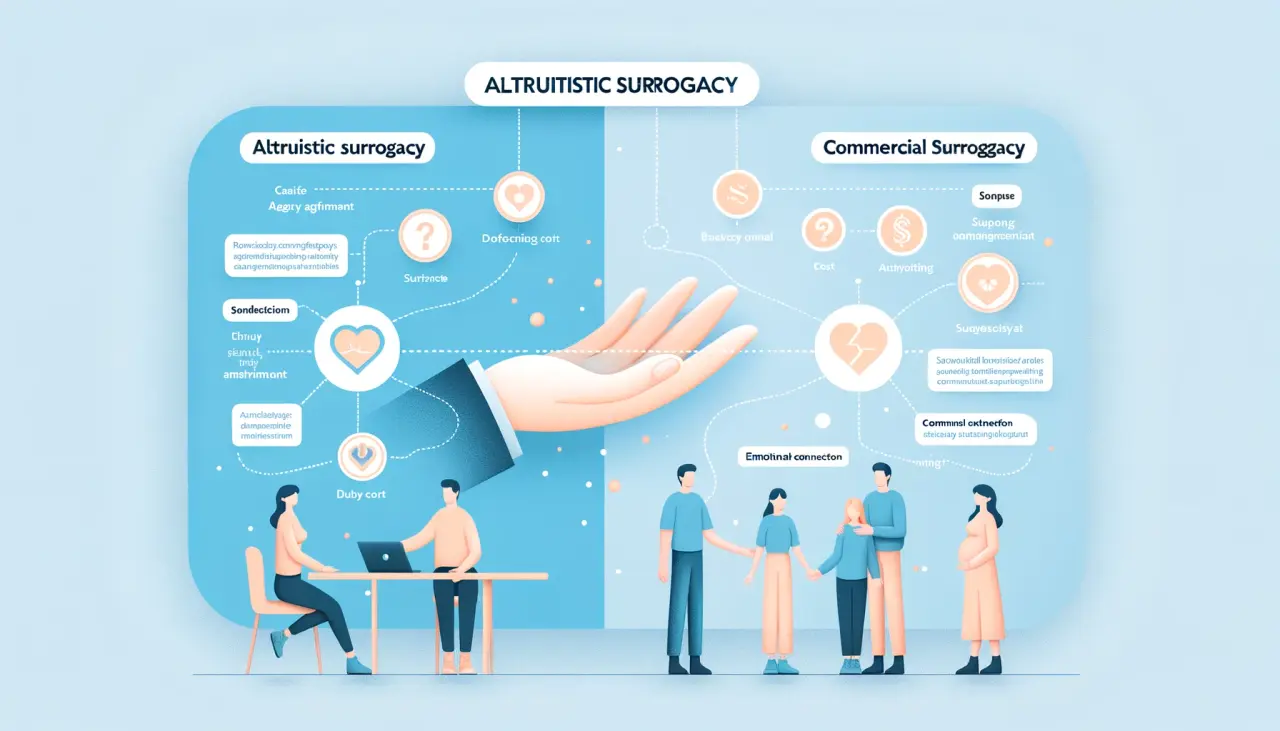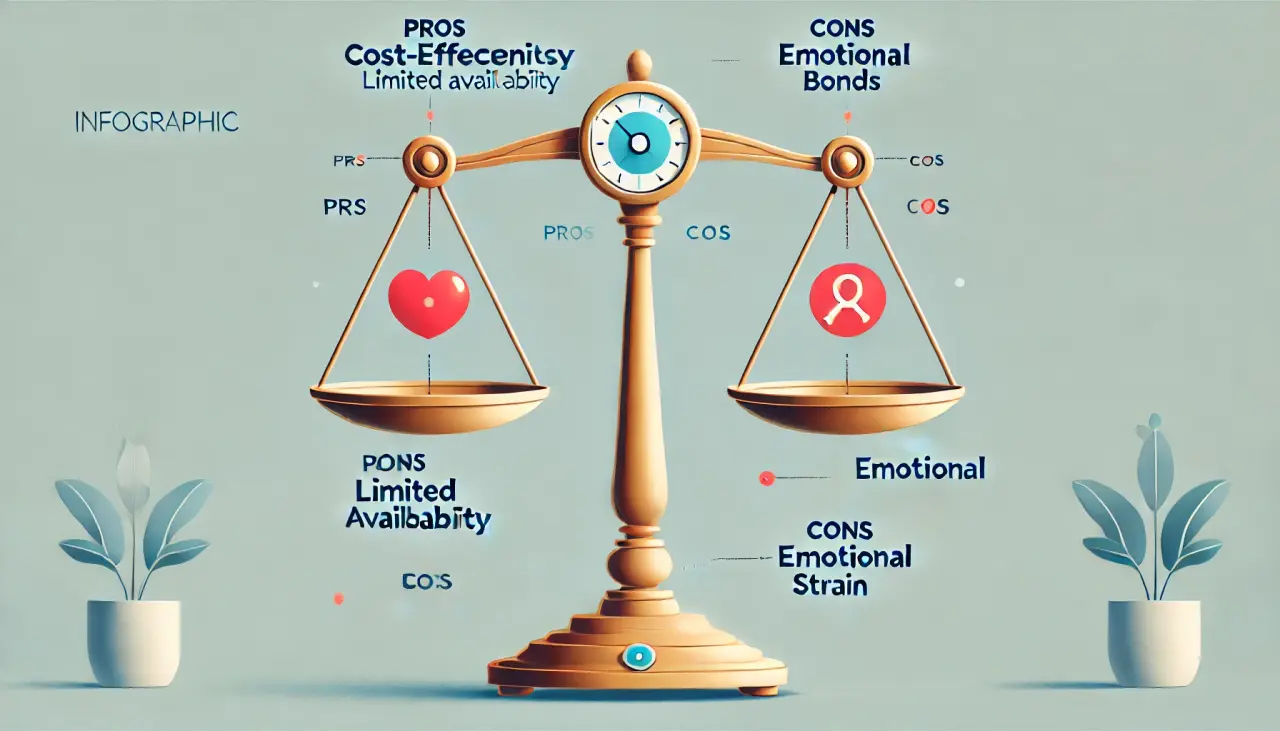
Altruistic Surrogacy: A Comprehensive Guide to Understanding Charitable Surrogacy
Altruistic surrogacy, often referred to as “charitable surrogacy,” is a selfless act that allows individuals or couples to fulfill their dreams of parenthood without financial gain for the surrogate. This unique approach to surrogacy emphasizes emotional commitment and the surrogate’s willingness to help others. In this article, we explore what altruistic surrogacy is, how it works, the differences between independent altruistic surrogacy and commercial surrogacy, and the challenges faced by altruistic surrogates.
What Is Altruistic Surrogacy and How Does It Work?
Altruistic surrogacy involves a surrogate mother who agrees to carry a child without receiving additional monetary compensation, aside from medical expenses and income lost due to the pregnancy. This arrangement often stems from a personal relationship, such as a close friend or family member, willing to help intended parents build their family.
Unlike commercial surrogacy, altruistic surrogacy focuses on mutual trust rather than contractual obligations for financial rewards. The process is similar to commercial surrogacy medically but differs significantly in its emotional and legal foundations. Many independent altruistic surrogacies bypass agency involvement, relying instead on pre-existing agreements between the parties. However, professional legal and medical guidance remains essential to navigate the complexities of the surrogacy journey.

How Does Independent Altruistic Surrogacy Differ From Commercial?
The primary distinction lies in the absence of financial compensation. In commercial surrogacy, surrogates receive a fee beyond reimbursed expenses, often arranged by agencies. Independent altruistic surrogacy avoids this financial aspect, often resulting in lower costs but greater reliance on personal relationships.
Another difference is the surrogate selection process. In altruistic surrogacy, surrogates are typically chosen from the intended parents’ social circle, fostering deeper personal connections. Commercial surrogacy, on the other hand, involves professional agencies matching surrogates with intended parents, ensuring legal and psychological vetting but often lacking the emotional bond present in altruistic cases.

Challenges Faced by Altruistic Surrogates
While altruistic surrogacy can be a rewarding experience, it is not without its challenges. One of the most significant hurdles is the emotional strain involved. Altruistic surrogates often carry a deep sense of responsibility to the intended parents, which can lead to feelings of pressure or undervaluation, especially if they are close family members or friends.
Legal and logistical challenges also arise. Without agency mediation, navigating agreements, medical procedures, and legal compliance can be complex. Additionally, the lack of financial compensation may dissuade some potential surrogates, making it difficult for intended parents to find a willing participant.

The Pros and Cons of Altruistic Surrogacy
Advantages of Altruistic Surrogacy
- Cost-Effective: Without surrogate fees, altruistic surrogacy is more affordable than commercial surrogacy.
- Legally Accessible: In some regions, like the UK and parts of the US, altruistic surrogacy is the only legal option.
- Fostered Relationships: The close bonds between the surrogate and intended parents often enhance trust and emotional connection.
Disadvantages of Altruistic Surrogacy
- Limited Availability: The selflessness required can make it challenging to find willing surrogates.
- Emotional Challenges: Surrogates may face emotional strain, potentially impacting relationships.
- Reduced Oversight: Without agency involvement, ensuring compliance with medical and legal requirements can be more complicated.

Final Thoughts on Altruistic Surrogacy
Altruistic surrogacy represents an extraordinary act of generosity, offering intended parents an economical and emotionally fulfilling path to parenthood. However, this journey requires careful consideration of the challenges and responsibilities involved. Consulting with legal and medical professionals is vital to ensure a positive experience for all parties.
By understanding what altruistic surrogacy is, how it works, and the unique dynamics of this selfless arrangement, intended parents and surrogates can make informed decisions that prioritize trust, care, and mutual respect.